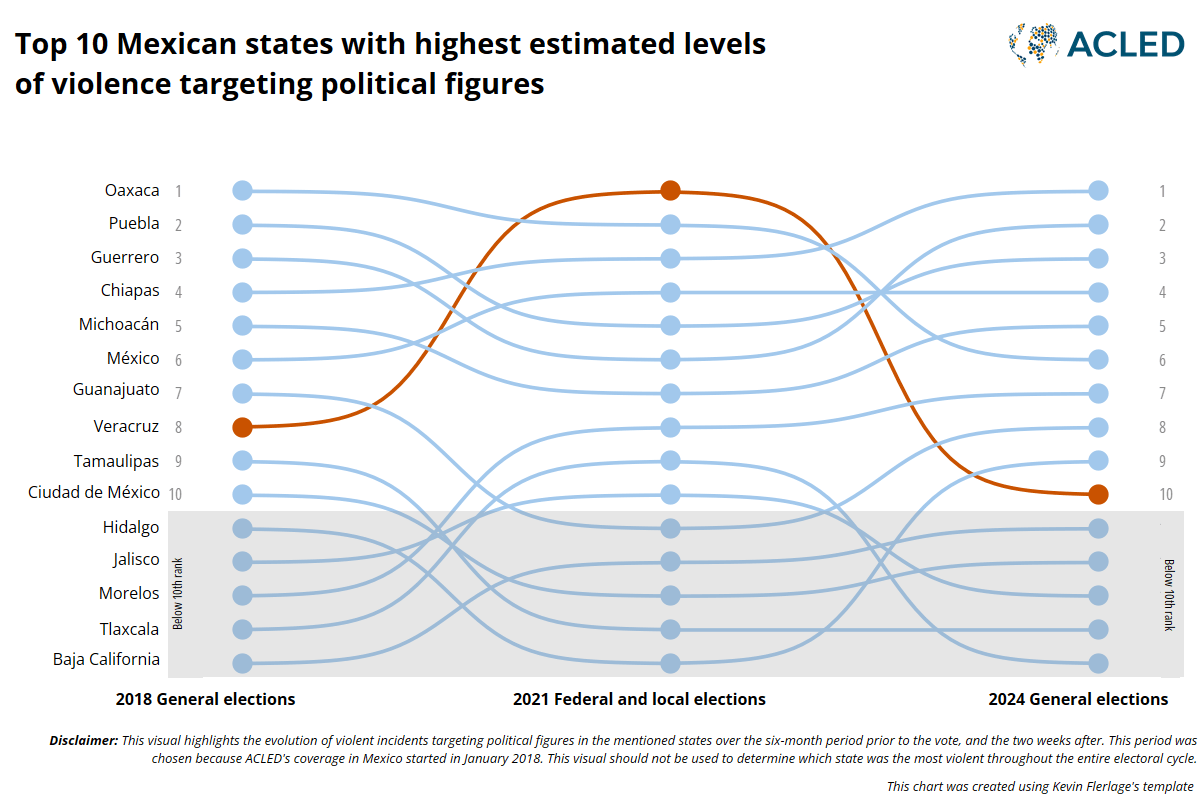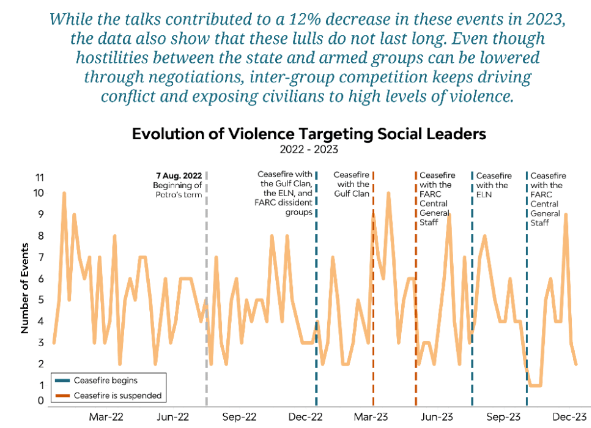Latin America & the Caribbean
Viv Ansanm: Living together, fighting united – the alliance reshaping Haiti’s gangland
16 October 2024
EnglishFrançaisEnglish Read in French On 22 September 2023, amid escalating gang violence and intense rivalries, several gang leaders unexpectedly announced the formation of a new alliance called Viv Ansanm.1Rezo Nòdwès,…
Read MoreFive key takeaways from the 2024 elections in Mexico
2 July 2024
Attacks related to political competition and attempts to put pressure on authorities at the local level — primarily perpetrated by organized crime groups — characterized the violence around the 2024 election cycle in Mexico, according to ACLED data.
Read MoreMexico’s land and elections feuds threaten political figures in Oaxaca and Chiapas
29 May 2024
Land conflicts and competition between communities are behind much of the violence against political figures in Chiapas and Oaxaca. This report examines how these factors fuel targeted violence around election periods.
Read MoreBeyond Mexico’s criminal gangs: Hybrid violence in Puebla, Mexico, and Veracruz states
15 May 2024
In the states of Mexico, Puebla, and Veracruz, violence around election cycles is more likely to be influenced by local power dynamics that are not always directly related to criminal groups as is the case in many other areas of Mexico.
Read MorePoliticians in the Crosshairs of Mexico’s Criminal Wars: The Cases of Guanajuato, Guerrero, and Michoacán
16 April 2024
In Mexico’s Guanajuato, Guerrero, and Michoacán states, violence targeting political figures generally occurs in hotspots of gang disputes. Past municipal elections have acted as a catalyzer of violence, and the trend is likely to continue during the 2024 electoral cycles.
Read MoreFor Colombia’s Social Leaders, Peace is Far from Total
23 February 2024
Social leaders are some of the most visible victims of Colombia’s internal armed conflict. Despite a slight decrease — arguably linked to negotiations between armed groups and the government — ACLED records 227 targeted attacks against them in 2023, particularly in areas where armed groups vie for control of drug trafficking corridors and resources
Read More





